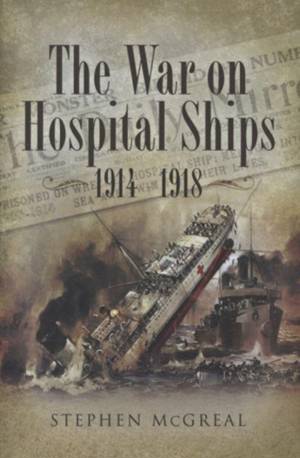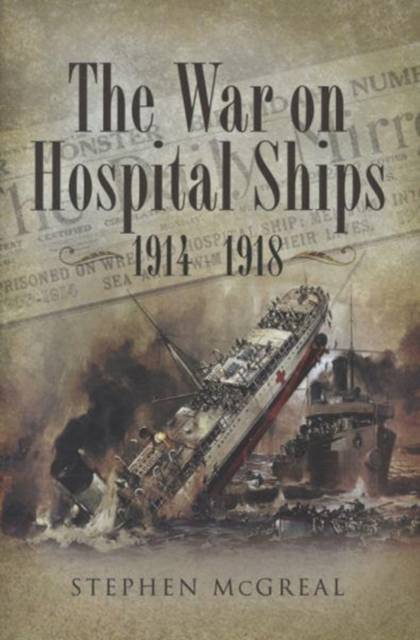
- Retrait gratuit dans votre magasin Club
- 7.000.000 titres dans notre catalogue
- Payer en toute sécurité
- Toujours un magasin près de chez vous
- Retrait gratuit dans votre magasin Club
- 7.000.0000 titres dans notre catalogue
- Payer en toute sécurité
- Toujours un magasin près de chez vous
Description
It is often said "The first casualty of war is the truth" and there is no better example of this than the furor caused by the claims and counterclaims of the British and German Governments at the height of the First World War. Wounded allied personnel were invariably repatriated by hospital ships, which ran the gauntlet of mined waters and gambled on the humanity of the U- Boat commanders. For, contrary to the terms of the Geneva Convention, on occasions Germany had sunk the unarmed hospital ships under the pretense they carried reinforcement troops and ammunition. The press seized on these examples of 'Hun Barbarity', especially the drowning of noncombatant female nurses.
The crisis heightened following the German Government's 1 February 1917 introduction of unrestricted naval warfare. The white painted allied hospital ships emblazoned with huge red crosses now became in German eyes legitimate targets for the U-Boats. As the war on the almost 100 strong fleet of hospital ships intensified the British threatened reprisals against Germany, in particular an Anglo-French bombing raid upon a German town.
Undeterred the Germans stepped up their campaign sinking two hospital ships in swift succession. Seven hospital ships struck mines and a further eight were torpedoed. Faced with such a massacre of the innocents Britain decided her hospital ships, painted and brightly lit in accordance with the Geneva Convention, could no longer rely on this immunity. The vessels were repainted in drab colors, defensively armed and sailed as ambulance transports among protected convoys. Germany had successfully banished hospital ships from the high seas.
The crisis heightened following the German Government's 1 February 1917 introduction of unrestricted naval warfare. The white painted allied hospital ships emblazoned with huge red crosses now became in German eyes legitimate targets for the U-Boats. As the war on the almost 100 strong fleet of hospital ships intensified the British threatened reprisals against Germany, in particular an Anglo-French bombing raid upon a German town.
Undeterred the Germans stepped up their campaign sinking two hospital ships in swift succession. Seven hospital ships struck mines and a further eight were torpedoed. Faced with such a massacre of the innocents Britain decided her hospital ships, painted and brightly lit in accordance with the Geneva Convention, could no longer rely on this immunity. The vessels were repainted in drab colors, defensively armed and sailed as ambulance transports among protected convoys. Germany had successfully banished hospital ships from the high seas.
Spécifications
Parties prenantes
- Auteur(s) :
- Editeur:
Contenu
- Nombre de pages :
- 272
- Langue:
- Anglais
Caractéristiques
- EAN:
- 9781844158584
- Date de parution :
- 20-04-09
- Format:
- Livre relié
- Format numérique:
- Ongenaaid / garenloos gebonden
- Dimensions :
- 163 mm x 234 mm
- Poids :
- 748 g

Les avis
Nous publions uniquement les avis qui respectent les conditions requises. Consultez nos conditions pour les avis.






